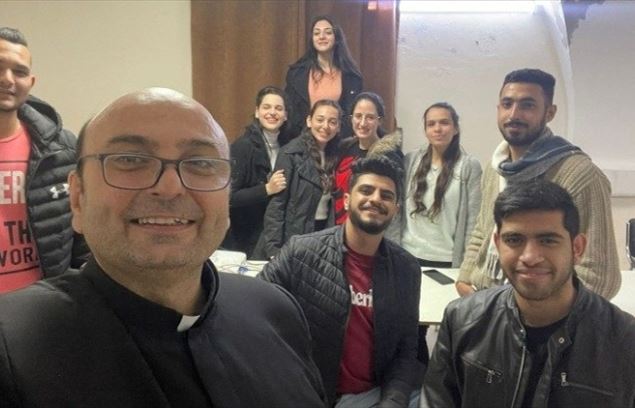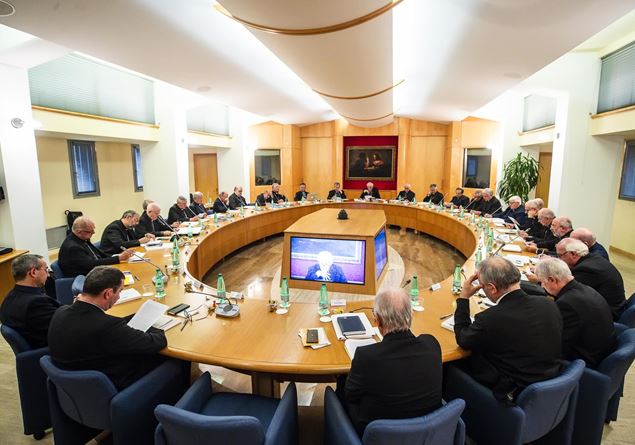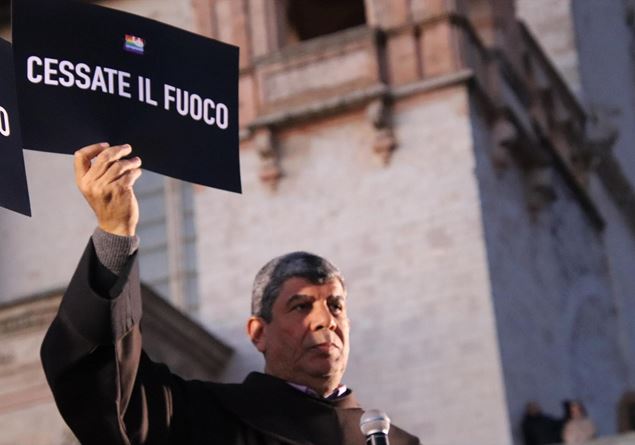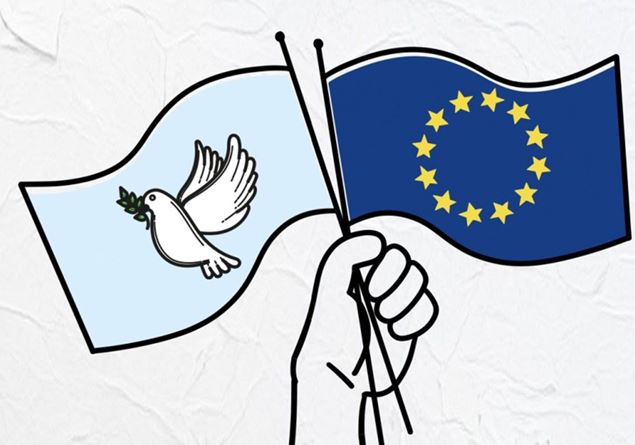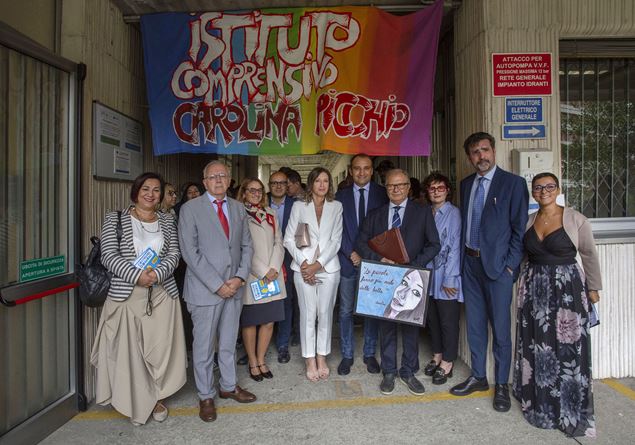
There are deaths that, however absurd, painful, heartbreaking, then trigger a generative movement made up of awareness and actions that rain down, improving the lives of thousands of people. It was also like this for Carolina Picchio, who She was not yet 15 years old when, on 5 January 2013, oppressed by shame for some photos that had been taken of her by peers in a moment of lack of lucidity and circulated online, she took her own life by throwing herself into the void. No one yet knew the word cyberbullying, but from that death and from the tireless action of her father Paolo, a Foundation was born in the name of Carolina Picchio in 2018 which carries out educational projects on the use of the internet aimed at young people, and law 71 of 2017 protection of minors for the prevention and fight against the phenomenon of cyberbullying. And now a school has chosen to be named after her.
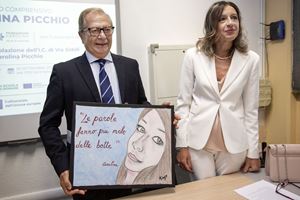
Paolo Picchio and the principal Pia Giuseppe Falcone
On Friday 20 September, in the presence of all the major institutional offices of Turin, greeted by messages from the President of the Republic Sergio Mattarella and the Minister for Education and Merit Valditara, a public ceremony for the naming of the Institute in the Turin suburbs of Via Sidoli after Carolina Picchio: three nursery schools, two primary schools and one lower secondary school where overall 70 percent of the students have foreign origins. An institute that has been carrying out educational projects aimed at inclusion, dialogue, listening and sharing for years. The director, Pia Giuseppina Falcone, explains how the institute arrived at this title: «We came into contact with the Carolina Foundation through a call for schools, entitled Social generationwhich we won. A collaboration between public and private was therefore born and, subsequently, the idea that Carolina Picchio could be the new name for our school. But we wanted it to be the result of a shared and conscious choice on the part of all students. So, after explaining to children and teenagers who that girl who died prematurely was and the very serious risks of cyberbullying, we included her name in a shortlist of candidates. We arrived at the ballot with the name of Piero Angela: all the students, by show of hands or by simulating a real election complete with ballot paper and ballot box, voted, and the name of Carolina Picchio won».
The children’s statements demonstrate that the entire school community is aware of the message behind this dedication. He says Lorenzo, 10 years old: «Cyberbullying is a form of both physical and psychological bullying and it was Carolina herself who indicated in a farewell letter to her father the names of the people who bullied her with the hope that her death could be of some use. Being here doing something so important gives me a lot of joy in my heart and throughout my body.” His peer echoes him Gaia: «Carolina is always in our hearts and we love her». The children and young people who attended the inauguration of the new school logo, designed by themselves, had a sincere outburst of affection for Paolo Picchiowho, after her emotional speech (“Carolina was my reason for living, transforming pain into a mission makes me feel closer to her, I hope that now you will all be more sensitive and attentive to the words you say…”) distributed smiles and he shook the hands of the boys who crowded around him.
A school so attentive to changes in society has on the one hand equipped itself to provide students with technological tools and adequate training to use them correctly, on the other it tries to stem the pervasiveness of technology in the lives of children, who, as demonstrated by the alarms of psychologists and teachers, confirmed by specific research, affects their cognitive and emotional dimension. «What the school, the place where children spend most of their time, must do», explains Valentina Benedetti, vice-principal, «is to offer a plurality of alternative stimuli to the use of the smartphone. For example, in the afternoon the school organizes motor education courses; we carry out reading education projects, also encouraging meetings between children and young people with authors; and in a neighborhood like Mirafiori, where kids can only meet in the park, we collaborate with a farmhouse to organize cultural events aimed at young people and families.”
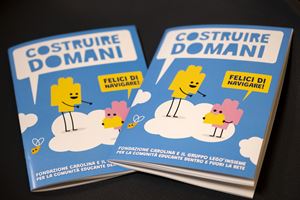
One of the Carolina Foundation’s educational publications created together with Lego to spread digital well-being in schools
If smartphones often mean isolation and difficulty communicating one’s emotions, here it isintroduces an antidote at school: Exit the corner, which is literally a colorful and welcoming corner of the atrium, created thanks to the support of the Synergie Italia employment agency, where tables and armchairs have been placed where the children can meet to talk to each other or with a teacher. And it still existsthe Us groupwhere some teachers periodically meet with children from various classes to understand if bullying phenomena are occurring and find strategies together to deal with them. «Even in an attentive school like ours there is particular attention to the excessive use of cell phones», specifies the director Falcone, «which has repercussions both on a cognitive level, weakening some functions of the brain, and on relationships. The smartphone is like an offshoot of the children’s bodies and, despite the ban on using it except for educational or otherwise authorized reasons, sometimes abuse occurs. In those cases, measures are taken: first of all we talk to the kids and notify the families. And even if we have to resort to sanctions, we want them to always have an educational impact. I don’t agree with the idea of banning smartphones up to the age of 14: the ban must be the last resort, we need education that leads to internalizing the rules and not experiencing them as an imposition. These tools are essential now, and at school we must teach them to use them consciously».
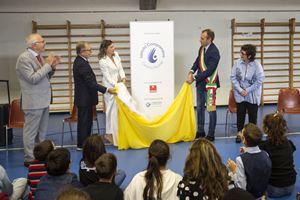
The students of the Carolina Picchio institute know that smartphones are off limits at school and must remain strictly turned off inside the backpack. And, at least those we met, seem aware that the cell phone should not be at the center of their world. Elisabetta, II media, tells us: «When my parents gave me the smartphone before I started middle school, they recommended that I use it little and not neglect my studies. Only this year we created a class chat: it is useful for updating sick classmates on lessons or getting clarifications on homework. For the rest I don’t post anything on social media, my friendships are real, I use WhatsApp to agree when we need to see each other, and between training and volleyball matches I’m always busy. The only concession to the virtual is a video game that I play online with a friend.” Even Christian, 12 years old, rarely uses his smartphone: «Between school, afternoon activities and football training, sometimes I go out in the morning and come back at 7pm. And there are also some classmates who don’t have it yet because their parents are against it. I don’t even feel attracted to AI: I prefer to create with my brain.”



